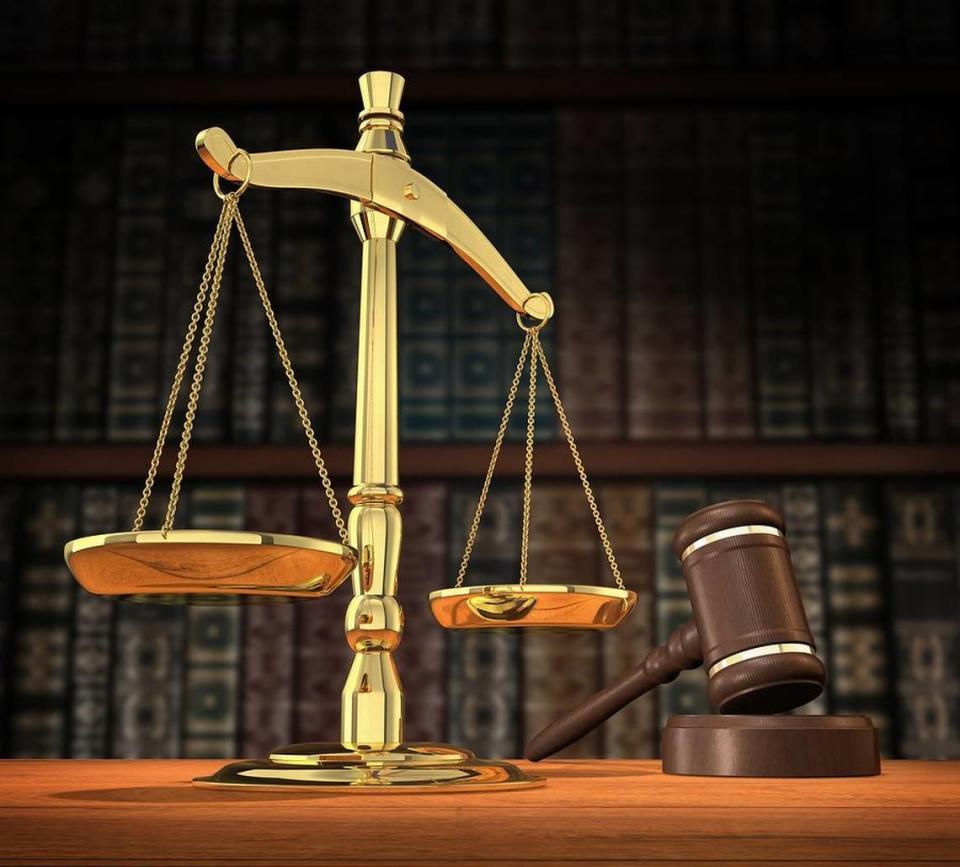Have concerns about your North Carolina attorney? Here are steps to seek help.
Navigating the legal system is challenging enough, but it can be even harder if you have concerns about your attorney’s communication or actions.
Here is some guidance on what clients can do to express concerns and what steps clients and attorneys can take to ensure the process goes as everyone expected.
Where do you file a complaint about an attorney?
The North Carolina rules of professional conduct define the code of ethics for attorneys in the state, and the North Carolina State Bar is tasked with investigating and holding attorneys who violate those rules accountable.
When individuals reach out to the State Bar, they can take a few different routes that include:
▪ The attorney-client assistant program, which helps resolve minor problems with attorneys and clients on an informal basis.
▪ The fee dispute resolution program, which helps clients and attorneys address disagreements over the amount billed.

The State Bar cannot order a lawyer to refund a disputed fee but the rules of professional conduct require the lawyer to participate in the process in good faith, Katherine Jean, counsel for the State Bar, wrote in an email.
If a lawyer does not participate in the process in good faith or a facilitator sees evidence that a lawyer violated the rules, the attorney will be referred to the grievance committee for possible professional discipline, she wrote.
▪ File a complaint with the grievance committee. Then the State Bar will investigate whether any issues violate the rules of professional conduct.
What happens after filing a grievance to the State Bar?
After a grievance is filed, State Bar staff conduct an investigation and prepare a report for the grievance committee.
In 2022, a total of 1,404 grievances were opened. About 746 made it to the committee that year. The primary reason just over half were considered by the committee, Jean wrote, is because some of the cases take time to investigate and next steps occurred later.
Once the case gets to the Grievance Committee most are dismissed. Specifically: out of the 746 considered last year, 75% were dismissed.
The committee chair can dismiss the grievance on a staff recommendation, or the committee can take a vote.
What happens if the grievance is dismissed?
In most cases nothing. But in some cases the committee may send a “letter of caution” pointing out unprofessional behavior or a “letter of warning,” for technical, minor or inadvertent rule violations. Last year, 13 files were dismissed with letters of caution and 43 with letters of warning. The letters are not public.
What happens if rules were violated?
The committee can impose admonitions, reprimands or censures, according to information on the State Bar’s website.
According to the State Bar’s office of counsel website and annual report, in 2022 that included:
22 admonitions, or private discipline for minor violations of the rules.
20 reprimands for situations where attorneys violated rules and possibly caused harm to a client.
Three censures in which the attorney has violated one or more of the rules of conduct and the harm or potential harm is significant. Censures are the only grievance committee discipline made public through the State Bar’s quarterly magazine and website.
Cases are also made public if they are sent to the disciplinary hearing commission. Last year the Grievance Committee referred 52 files involving 45 attorneys to the disciplinary hearing commission.
What is the disciplinary hearing commission?
The commission serves as the judge and jury in disciplinary cases. It conducts trials and decides on whether and what sanctions are appropriate.
Sanction options include admonishment, reprimand, censure, suspension for up to five years or disbarment.
Last year, three attorneys were disbarred and 17 were suspended, including 11 suspensions that were stayed after they complied with prescribed conditions, according to the annual report. Three attorneys were censured, reprimanded or admonished.
Where else to turn for help?
Some people file lawsuits against the attorneys in state court. Joshua Walthall, a former State Bar prosecutor, suggests talking to an attorney that specializes in legal malpractice or possibly filing a claim against an attorney’s malpractice insurance.

Clients can send complaints to the Attorney General’s Office, though they are forwarded to the State Bar.
What should attorneys share before taking a case?
North Carolina rules of professional conduct say that a lawyer should “explain the matter to the extent reasonably necessary to permit a client to make an informed decision” about representation.
The attorney may not have enough information about the case initially, so they may have to do an investigation before they can give an opinion about the likelihood of success, Jean wrote.
Emily Gladden, an attorney and partner at Tin Fulton Walker & Owen who takes post-conviction cases, noted that she finds it helpful to clearly explain what steps she plans to take, the time frame for completing the work and the best way for the client of family members to reach her.
Gladden said she makes every effort with post-criminal-conviction cases to set low expectations. “Success is far from a sure thing, and in most cases, rare,” she wrote.
How should attorneys end client relationships?
It depends on where the case stands, Walthall said. If any motions have been filed, the best practice is to ask the court through a motion to withdraw. If there are pending motions, the attorney should take actions to ensure client aren’t harmed by the withdrawal, he said.
Walthall said that he encourages his clients to also send a letter outlining the reason for the departure, and how much attorney earned and how much the attorney is returning.
In those cases, Walthall will often end up returning the fee instead of haggling over the earned fees, he said.
“Look I wasn’t able to provide you with many of the services that I thought I was going to, here is your money back,” he tells his clients, he said.
What are clients entitled to?
Clients have a right to the file that the attorney created on the client’s case. If you ask for it, an attorney must give it to you, Walthall said.
The rules of professional conduct say that anything that is helpful to a successor counsel should be turned over, including papers and other items delivered to the lawyer by the client.
A lawyer’s personal notes and unfinished work are not included.
What should attorneys share about long shot, post-conviction cases?
Walthall said he would advise an attorney to explain a client’s chances of success.
That may include saying the case has a small chance of success or disclosing that most of these cases aren’t successful, Walthall said.

Gladden says she handles post-conviction cases in two stages. First she reviews cases to determine any viable post-conviction issues, which includes speaking with the client, family members, the former attorney and obtaining files. She also seeks post-conviction discovery from prosecutors.
If there are viable issues, her clients can choose to move to the next phase of drafting and filing a motion.
Virginia Bridges covers criminal justice in the Triangle and across North Carolina for The News & Observer. Her work is produced with financial support from the nonprofit The Just Trust. The N&O maintains full editorial control of its journalism.

